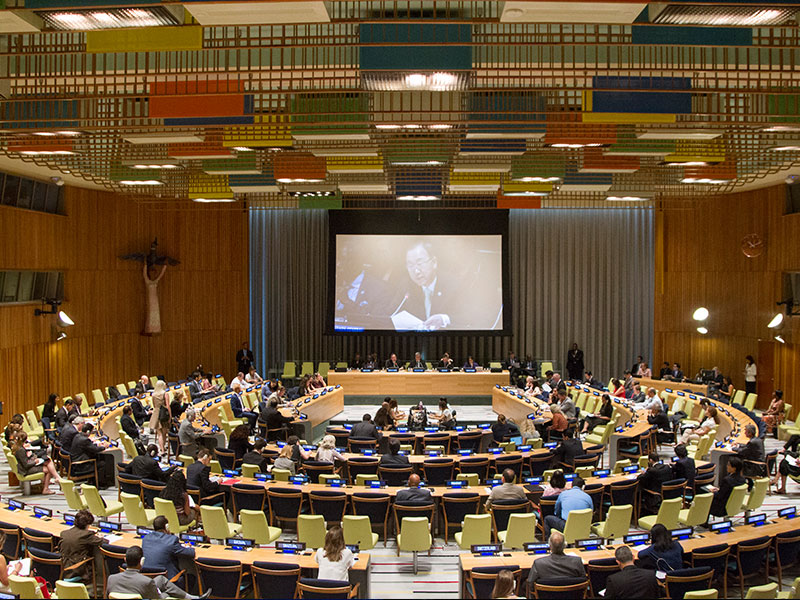Member States

UN Photo/Rick Bajornas
The principle of the Responsibility to Protect reaffirms the primary responsibility of the State to protect its population from genocide, war crimes, ethnic cleansing and crimes against humanity. That responsibility is grounded on well-established legal obligations that entail an obligation not only to punish atrocity crimes but also to prevent them. Such legal obligations can be found in the Convention on the Prevention and Punishment of the Crime of Genocide, in international human rights and humanitarian law and in customary international law. International courts and tribunals have also cited these obligations and clarified their specific content.
The responsibility to protect is an ally of sovereignty, not an adversary. It grows from the positive and affirmative notion of sovereignty as responsibility, rather than from the narrower idea of humanitarian intervention. By helping States to meet their core protection responsibilities, the responsibility to protect seeks to strengthen sovereignty, not weaken it.
Member States are therefore under the legal obligation to develop strategies and take measures to protect their populations from atrocity crimes. They can do this individually or through networks where they support each other in this endeavour. Individually, States should mainstream an atrocity prevention lens in their national policies, programs and planning that will contribute to mitigate the risk of atrocity crimes. They should also conduct regular assessments of atrocity risk at national and local level and improve their understanding and monitoring of risks factors as well as the process that can lead to atrocities and measures to contravene it. In this regard, it is important that States partner with other actors, such as international and regional organisations, as well as civil society actors, to receive support and amplify their efforts in this regard.
Several global and regional networks dedicated to preventing genocide, war crimes, ethnic cleansing and crimes against humanity have also been established by States in recent years. These networks provide important opportunities to accelerate implementation, deepen international cooperation and exchange lessons learned. In some cases, the networks connect senior government officials who have been designated national focal points for the responsibility to protect or atrocity prevention, with specific responsibilities for integrating atrocity prevention within wider national policies, coordinating the work of relevant departments and agencies, building capacity to mitigate domestic atrocity risks, and extending assistance at the global level.
Check out some of these State-led national, regional and global initiatives or networks:
- Global Action Against Mass Atrocity Crimes
- Global Network of R2P Focal Points
- ICGLR’s Regional and National Committees on the Prevention and Punishment of Genocide, War Crimes and Crimes against Humanity and all forms of Discrimination
- Latin American Network for Genocide and Mass Atrocity Prevention
- USA Atrocity Prevention Board

